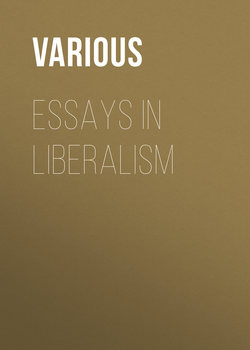Читать книгу Essays in Liberalism - Various - Страница 4
THE LEAGUE OF NATIONS AND THE REHABILITATION OF EUROPE
By the Rt. Hon. Lord Robert Cecil
The Negative and the Positive
ОглавлениеThese two points of view do represent undoubtedly fundamental differences of political attitude, and you will find that the two sets of advocates or supporters of the League whom I have tried to describe, will inevitably regard with different emphasis the provisions of the Covenant, and even the achievements of the League. For if you read the Covenant you will find two sets of provisions in that document. It does recognise the two schools, as it were, that I have been describing. It has a set of provisions which deal with the enforcement, the safeguarding of peace, and a set of provisions which deal with the building up of international co-operation. You will notice the two sets of provisions. There are those aiming directly at the settlement of disputes without war. This is the central part of the League. It is the first thing before you can hope to do anything else. Before you can begin to build up your international spirit you must get rid as far as you can of the actual menace of war; and in that sense this is the central part of the Covenant. But, in my view, the most enduring and perhaps the most important part is that set of provisions which cluster round the group of articles beginning with Article 10 perhaps, certainly Article 12, and going on to Article 17—the group which says in effect that before nations submit their disputes to the arbitrament of war they are bound to try every other means of settling their differences. It lays down first the principle that every dispute should come to some kind of arbitration, either by the new Court of International Justice—one of the great achievements of the League—or discussion before a specially constituted Arbitration Court, or failing both, then discussion before the Council of the League; and Articles 15 and 16 provide that until that discussion has taken place, and until adequate time has been allowed for the public opinion of the world to operate on the disputants as the result of that examination, no war is to take place, and if any war takes place the aggressor is to be regarded as perhaps what may be called an international outlaw.
Before you begin to build you must have freedom from actual war, and the provisions have been effective. They are not merely theoretic. I am not sure whether it is generally recognised, even in so instructed an assembly as this, how successful these provisions have actually been in practice. Let me give you briefly two illustrations: the dispute between Sweden and Finland, and the much more urgent case of the dispute between Serbia and Albania. In the first case you had a dispute about the possession of certain islands in the Baltic. It was boiling up to be a serious danger to the peace of the world. It was referred to the League for discussion. It was before the existence of the International Court. A special tribunal was constituted. The matter was threshed out with great elaboration; a decision was come to which, it is interesting to observe, was a decision against the stronger of the two parties. It was accepted, not with enthusiasm by the party that lost, but with great loyalty. It has been adopted, worked out in its details by other organs of the League, and as far as one can tell, as far as it is safe to prophesy about anything, it has absolutely closed that dispute, and the two countries are living in a greater degree of amity than existed before the dispute became acute.
But the Albanian case is stronger. You had a very striking case: a small country only just struggling into international existence. Albania had only just been created before the war as an independent State, and during the war its independence had in effect vanished. The first thing that happened was its application for membership of the League. That was granted, and thereby Albania came into existence really for the first time as an independent State. Then came its effort to secure the boundaries to which it was entitled, which had been provisionally awarded to it before the war. While that dispute was still unsettled, its neighbour, following some rather disastrous examples given by greater people in Europe, thought to solve the question by seizing even more of the land of Albania than it already occupied. Thereupon the Articles of the Covenant were brought into operation. The Council was hastily summoned within a few days. It was known that this country was prepared to advocate before that Council the adoption of the coercive measures described in Article 16. The Council met, and the aggressive State immediately recognised that as a member of the League it had no course open but to comply with its obligations, and that as a prudent State it dared not face the danger which would be caused to it by the operation of Article 16. Immediately, before the dispute had actually been developed, before the Council, the Serbians announced that they were prepared to withdraw from Albanian territory, and gave orders to their troops to retire beyond the boundary. Let us recognise that this decision having been come to, it was carried out with absolute loyalty and completeness. The troops withdrew. The territory was restored to Albania without a hitch. No ill-feeling remains behind, and the next thing we hear is that a commercial treaty is entered into between the two States, so that they can live in peace and amity together.
